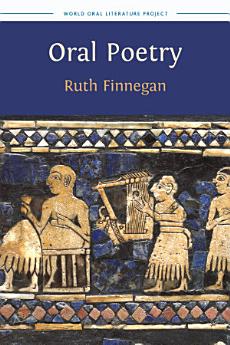Oral Poetry
About this ebook
Written from a primarily anthropological and literary perspective, this study contributes to the socio-cultural aspects of verbal art while also engaging with the literary dimensions of poetry which happens at any given moment to be unwritten. Finnegan's clear, non-technical language and extensive use of translated examples make this work accessible to a wide audience, appealing not only to sociologists and anthropologists but also to those with an interest in poetry, in comparative literature, and in global folk traditions.
The re-issue of this classic study is now augmented by further illustrations and a newly written Introduction and Conclusion, situating it in the context of the contemporary study of literature.
About the author
Ruth Finnegan FBA OBE was born in 1933 in the beautiful fraught once-island city of Derry, Northern Ireland, and brought up there, together with several magical years during the war in Donegal. She had her education at the little Ballymore First School in County Donegal, Londonderry High School, Mount (Quaker) School York, then first class honours in Classics (Literae humaniores) and a doctorate in Anthropology at Oxford. This was followed by fieldwork and university teaching in Africa, principally Sierra Leone and Nigeria. She then joined the pioneering Open University as a founding member of the academic staff, where she spent the rest of her career apart from three years – and more fieldwork – at the University of the South Pacific in Fiji, and is now, proudly, an Open University Emeritus Professor. She was elected a Fellow of the British Academy in 1996, and is also an Honorary Fellow of Somerville College, Oxford. Ruth has published two books with OBP, Why Do We Quote? The Culture and History of Quotation (2011), https://doi.org/10.11647/OBP.











